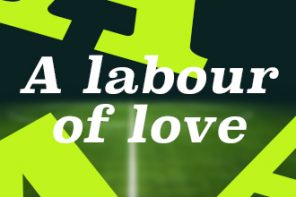You would think that scoring over 100 goals for your country would mean a lifetime of adoration and respect from your compatriots. But in the case of Iran’s legendary former striker, Ali Daei, it’s just not so simple.
Daei is the leading scorer in international football history, with 109 goals scored in 149 matches for Team Melli, with career highlights including two World Cup Finals appearances, a Bundesliga title and a Champions League runners-up medal. To understand why he splits opinion in his home-country requires an insight into some of the key events that bookmarked his career.
Daei is an uncompromising, determined and somewhat stubborn, figure on and off the pitch. He was never the most technically gifted footballer but had a strong motivation and mentality that catapulted him to international recognition and success. Unlike many of his footballer counterparts in Iran, he graduated with an Honors degree from one of the most prestigious universities in the country, the Sharif University of Technology, with a Bachelors of Science in Materials Engineering, long before he became a famous footballer.
From the outset, he had a long-term plan, which only centred on football. It included setting up a number of industrial factories, where he invested his hard-earned cash even while still an active footballer. Eventually, it culminated in setting up Daei Sports, a sporting clothes and equipment chain of stores which, at its peak, was the official supplier to Team Melli and almost every club in the Iran Pro League (IPL).
Daei was a multi-millionaire long before Iranian footballers were paid the sort of money they receive today. His entrepreneurial endeavours rattled a lot of ex-players, who in some cases had retired without a penny to their names due to poor investments. But in Iran, as in the UK, heroes placed upon pedestals can be swiftly brought down given the opportunity.
In fact, one of the men who contributed to Daei’s successful international career, Mohammad Mayeli Kohan, is one of the most outspoken critics of the legendary striker. The rift began in 1997 when Mayeli Kohan, then Team Melli manager, dropped Daei from the squad after a disagreement. Iran lost its next match against Qatar and the manager was duly sacked.
Daei was quickly recalled, and Iran qualified for its first World Cup since 1978. Mayeli Kohan believes that Daei was responsible for his sacking and did not waste any opportunity attacking Daei’s form, his business earnings, and his “exorbitant” salary later as Persepolis manager. Mayeli Kohan’s smear campaign included unfounded allegations of tax fraud and eventually resulted in Daei suing him for libel on three different occasions, at the end of which Kohan was sentenced to a jail term and given a hefty fine.
On the pitch, Daei was largely a fan favourite until a turning point in the early part of the new century when he was clearly past his best. Nevertheless, the national team captain continued to be an ever-present in Branko Ivankovic’s side. Lots of critics argued that he should step aside, and allow younger strikers, albeit unproven at international level, like Farhad Majidi, Edmond Bezik and Reza Enayati an opportunity to stake a claim.
Not many professionals would have accepted the barrage of criticism and would have stepped aside. However, Daei remained his usual stubborn and determined self with the ultimate goal of a swansong at the World Cup in Germany, by which time he would be 37.
Rumors and allegations swirled that Ivankovic’s team selections were influenced by Daei, who allegedly blacklisted a number of younger players from the national side. By the time the World Cup kicked off, it was a well-known “secret” that Team Melli was full of cliques of pro-Daei and anti-Daei players, led by Ali Karimi, who were barely on speaking terms.
The team looked mentally preoccupied, physically underprepared and was knocked out after two defeats against Mexico and Portugal. However, before the third match against Angola, rumors of a fight between Daei and Karimi in the camp leaked out to the press. It has never been confirmed by either party but it is widely accepted to have occurred. Karimi, who had already been subbed off during the Portugal game, was dropped for the final group match against Angola and refused to come off from the bench when summoned by Ivankovic.
Daei’s international career was over in the most unceremonious manner. For all the criticism, it has taken almost a decade before a true heir, in the shape of Sardar Azmoun, has been found in the national side.
Within a few months, Daei would be named player-manager at Saipa after Werner Lorant’s abrupt departure. He led Saipa to the IPL title in his maiden season at the helm, opening a new chapter of sucess in his story. Daei would retire from the playing staff at the end of the season but would not replicate the title win the following season, when the club finished mid-table.
However, almost immediately, riding the wave of optimism, he would be named the Iranian national manager, at a time when it was ‘trendy’ for ex-international footballers to be given the top jobs in Europe. Conspiracy theorists even suggest that Daei was pushed into taking the job, at a time when he barely had any experience, in order to undermine his overall stature in Iranian football. That might sound a bit far-fetched but that is the nature of the football landscape in post-revolutionary Iran.
Nevertheless, it was a little naive of him to take the job so early into his managerial career. But being blessed with limitless self-confidence, bordering on arrogance at times, he was never going to be able to resist the lure. During an ill-fated reign which ended after a home defeat to Saudi Arabia in the World Cup Qualifiers, Daei did at least begin to introduce a number of younger players to the national side, something which hadn’t been done for a while. He also began to heavily look outside Esteghlal and Persepolis for players. Again, this was a welcome change that had not occurred before in Iran. Since that stint, he has twice managed Persepolis and won two domestic cups.
Internationally, Iranians provide a unified front over Ali Daei’s success and status. They will always proudly proclaim his international record as well as his stake to be the greatest Asian football player of all-time. He was lauded recently when inducted to the Asian Football Hall of Fame. However, domestically, there is a sharp split between his supporters and opponents.
For instance, Karimi remains a vocal opponent. With just as large a following, he is arguably as revered as Daei by Iranians due to his undoubted technical ability and enigmatic nature. Karimi recently called Daei a “self-serving and selfish man who only thinks of his own benefits”.
A harsh charge, particularly given Daei’s philanthropy, which includes investment in schools and grass-roots football as well as constructing grass pitches and funding stadiums all over Iran, most notably in his home-town of Ardabil, where the 20,000 capacity Ali Daei Sports Complex currently stands.
What is certainly true though is that his arrogant demeanour can occasionaly damages his image – but that may be the last of Daei’s concerns. He has always taken up a defensive stance when confronted by anyone, wary of what could be asked of him, and understandably so. He refers to himself in the third person regularly, and does not hold back when he is under attack.
He has always remained a staunch supporter and defender of Iranian football and has never publicly initiated any quarrel or rift. And ultimately, for all the criticism and allegations, his status as a legend, albeit a divisive one, remains intact to this day.






